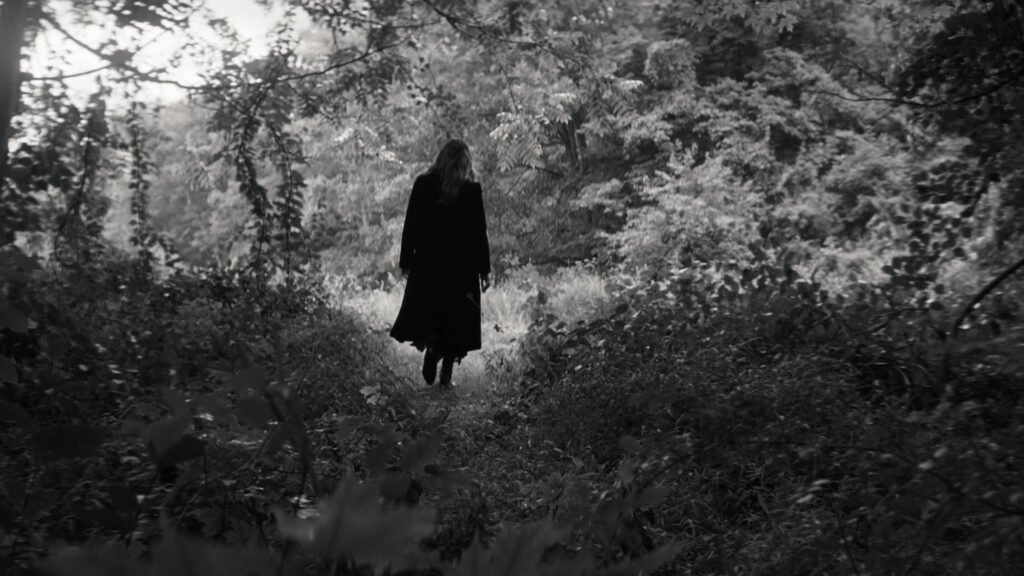Broken Bird | New Trailer For Chilling UK Horror-Thriller
BROKEN BIRD marks the feature directorial debut of Joanne Mitchell, who ...

What choice would you make if, at the crossroads of death, you were offered the gift or curse of immortality?
That’s the question at the heart of The Wanderer, a quiet yet soul-stirring short film directed by Michael Lavine. With just two characters, a desolate meadow, and a contract soaked in symbolism, the film opens a portal into a deeply philosophical conversation between the dying and the undying. It’s a short film that lingers long after its final frame, not because of spectacle, but because of its vulnerability and emotional weight.

The story begins simply. Hopper, a wounded man clinging to life in the middle of nowhere, is visited by Morana, a beautiful but otherworldly woman who offers him a way out. She is immortal but bound to an eternal curse she longs to escape. So she invites and tries to convince Hopper to take her place. The pact is simple, he must sign a contract and shoot her to seal the exchange. But nothing about this encounter is easy. Hopper hesitates, questioning her motives, her truth, and ultimately, himself.
“I am not Death,” Morana says softly, a line that lingers like a whisper in the wind.
The film’s dialogue is sparse but deliberate, each word echoing with the weight of unanswered questions. “There is no heaven, there is no hell, and God does not exist,” Morana declares, a statement that strips mortality of its comforting illusions and leaves only raw existence. What, then, happens to us when we die? And what kind of existence is one without end?
Morana is played with haunting grace by Alice Kremelberg, who speaks in Early Modern English, a beautiful touch that separates her from the present moment and highlights her timelessness. Her performance is layered with sorrow and longing, revealing the exhaustion of someone who has lived too long. Her beauty is striking, yes, but it’s the weight of her burden that leaves a mark. As she pleads for freedom, we see not just desperation, but envy of Hopper’s ability to die, to be free, to end.

Opposite her is Cody Kostro as Hopper, who brings a quiet, almost reluctant wisdom to the role. There’s a naive calm in him, a man who’s already half-accepted death and doesn’t quite trust the lifeline being thrown his way. His restraint, his questions, and his decision not to shoot Morana become a powerful stance a choice to embrace the unknown rather than inherit a never-ending existence.
Shot entirely in black and white, The Wanderer leans into noir aesthetics to deliver a timeless and ethereal atmosphere. The soft lighting and gentle shadows feel almost like a dream or a slow descent into death. Cinematographer Mott Hupfel understands the visual language of emotion, and each frame is delicately crafted to serve the film’s quiet mystery. Even the classic Plymouth car Morana drives feel symbolic, like a ghostly carriage ferrying her from soul to soul, forever searching.
There’s intention in every choice every visual, every word, every silence. The final scene, where Hopper succumbs to his wounds and Morana disappears into the shadows once again, leaves us with a poignant truth: neither character wins, but both face their fate with a strange, poetic courage.
The Wanderer is more than just a short film. It’s a meditative piece a quiet storm of thought and emotion that dares to ask the big questions and sit in the discomfort of not having answers. With Lavine’s minimalist direction and a striking pair of performances, this film will undoubtedly resonate with audiences attuned to philosophical cinema and emotional storytelling. For those willing to pause, reflect, and wander through its emotional terrain, The Wanderer is a hauntingly beautiful invitation.

Leave A Reply